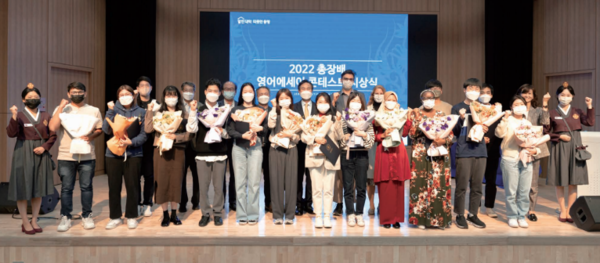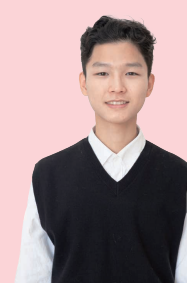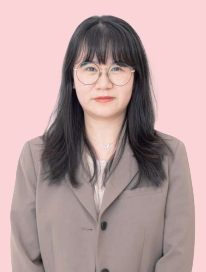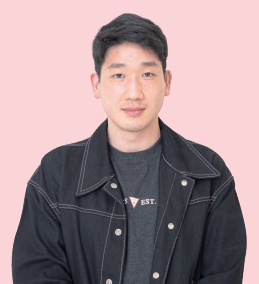
The JBNU Writing Center is proud to announce the winners of the 2022 Presidential English Essay Contest. Congratulations to all those who participated in this prestigious event. Funded by the Office of University Innovation Support, the event aimed to enhance and reward the English-language writing abilities and critical/creative thinking skills of JBNU’s undergraduate and graduate students. We received an unprecdented 147 submissions this year, 120 from undergraduate students and 27 from graduate students. The evaluation committee undertook a meticulous multi-step assessment to identify the most well-written papers, as reflected in the depth and breadth of their analysis, interpretation, and synthesis of the collected data, as well as the quality of their writing. While it was difficult to choose from such a competitive pool of candidates, ultimately the following students were selected for their stand-out submissions.
● Undergraduate Students
1st place: Grace Pendo Masha from the Dept. of Bio-Medical Engineering; 2nd place: Hawsan Gim from the School of Pharmacy; 2nd place: Heejung Yang from the Dept. of Convergence Technology Engineering; 3rd place: Minji Lee from the Dept. of Chemical Engineering; 3rd place: Jongwoo Bae from the Dept. of Veterinary Medicine; 3rd place: Hyeji Hwang from the Dept. of Bio-Medical Engineering; 4th place: Geonhee Cho from the Dept. of Civil Engineering; 4th place: Jiwon Kim from the School of Medicine; 4th place: Yunah Kim from the Dept. of Electronic Engineering; 4th place: Solchan Yu from the School of Medicine; 4th place: Jin Yu from the Dept. Spanish & Latin American Studies; 4th place: Hussanin Musharrof from the Dept. of International Engineering and Science; 4th place: Minju Jeong from Dept. of Molecular Biology
● Graduate Students
1st place: Yuwen Wei from the Dept. of Nano Convergence Engineering; 2nd place: Siti Norhasanah Binti Sanimu from the Dept. of Integrated Energy-AI; 2nd place: Yeonjoo Kim from the Dept. of Law; 2nd place: Youngchan Kim from the Dept. of Aerospace Engineering; 3rd place: Seungwon Chang from the Dept. of Bio-Nano Convergence Engineering; 3rd place: Eunji Kim from the Dept. of Nano Convergence Engineering; 3rd place: Soeng Chandara from the Dept. of Agricultural Biology; 3rd place: Minyeol Choi from the Dept. of Law
● Impact of Climate Change on Hydro-Electric Power Production in Africa and its Solutions
- Grace Pendo Masha First Place(undergraduate)

Africa is currently using less than 10% of the hydro-power available to the continent. The hotter temperatures associated with climate change are likely to reduce the amount of water available for hydro-power, as more water evaporates from dams. Moreover, changes to rainfall patterns will lead to less water in some areas, and strain the management of existing hydro-power systems in others. Finally, extreme weather events like cyclones (i.e., Cyclone Idai in 2019) can produce flooding and debris that reduces the efficiency of hydro-power stations. In response, governments can improve their weather forecasting capabilities, promote policies that ensure emergency and maintenance funds are available, and prepare their hydro-power facilities for these changes.
● The association between climate change and semiconductor industry
- Yang Hee Jung Second Place(undergraduate)

Semiconductors are essential to the technology that we use every day. This industry, however, is vulnerable to climate change. Droughts make it harder for semiconductor manufacturers to secure the millions of tons of ‘ultra-pure’ water needed to remove microorganisms, bacteria, minerals, and particulates from the manufacturing process. For example, TSMC, the world’s largest semiconductor foundry, saw its ability to access public water cut in response to the worst drought on the island in half a century. Likewise, extreme temperatures can result in fluctuating power supplies that shut down factories. In Texas, power was cut due to an extreme cold wave, and Samsung’s semiconductor factory there had to be shut down. Measures must be taken to protect against these possibilities; we need new technologies that allow factories to operate with less electricity and filter otherwise wasted water into useable ‘ultra-pure’ water.
● Energy Conversion: The Great Assignment Confronting Climate Change
- Hawsan Gim Second Place(undergraduate)

To increase the use of renewable energy, politics must play a more active role. Governments should convert the energy system, which is currently centralized, to a decentralized system. In the latter, power is produced closer to where it is used. Such a system requires less infrastructure and enables less energy to be lost through transmission. Governments should also expand Energy Storage Systems, which store power when too much is produced. These systems can be used to stabilize power grids at times of peak energy use. Finally, governments should encourage the switch to Virtual Power Plants, which ‘virtually’ treat dispersed power sources as a single power station. These systems enable the production of a stable supply of electricity from multiple smaller power stations. In short, as the price of renewable power continues to drop, governments should support the transition to a new generation of power generation systems and policies.
● The Ethical Responsibility of Autonomous Vehicles
- Wei Yuwen First Place(graduate)

In May 2016, a Tesla EV collided with a truck crossing a highway while operating in self-driving mode in the U.S. state of Florida, killing the owner of the EV. Incidents like this highlight the difficulty of defining legal liability for traffic accidents caused by autonomous vehicles. Any discussion of where responsibility should be placed must consider not only the objective characteristics of abstract traffic situations, but also the subjective opinions of car users. In cases where the user can intervene in the operation of the car, he or she is naturally obliged to pay attention to conditions and intervene when necessary to avoid an accident. Correspondingly, this user’s liability in an accident would be based on his failure to detect the abnormal situation in time and intervene. In the case of fully driverless cars, in which the user is unable to operate it, he or she nevertheless bears some moral responsibility for any accident; they assume the risk and moral responsibility for any potential accidents at the point they decide to use a self-driving car.
● Navigating the Liability of Autonomous Vehicles
- Siti Norhasanah binti Sanimu Second place(graduate)

While road fatalities, accidents, and hazards have been reduced with the advent of advanced driver-assistance technologies, their widespread use has given rise to a new and complicated discourse concerning who(or what) bears the burden of responsibility when incidents do occur. With traditional driving, the tools for a jury to apportion responsibility are clear; they must inquire into the circumstances of the accident(e.g. weather conditions) and driver behavior. But when drivers are substituted with machines, the calculation changes. This calculation is made more complicated by the fact that currently, cars may posses autonomous driving technologies that fall into one of six categories, with each category including increasingly sophisticated decisions made by the system, and that it is not clear what branch of law would apply to accidents involving these systems(perhaps breach of contract? or tort? or product liability?). In short, it is premature to produce general solutions to these theoretically complicated cases. Future incidents are best handled on a case-by-case basis, as each will involve unique interactions between manufacturer/driver/car/victim/ accident.
● Fundamental Human Rights: The Compass of Cruising Deep-fake Technology
- Youngchan Kim Second place(graduate)

‘Deep Fake’ video technology was recently used in the Russia-Ukraine conflict to produce a fake video of President Zelensky surrendering to Russian forces. This case highlights how this technology can be used to undermine public trust in information, harm the individuals represented in these videos, and reinforce people’s preconceived notions. Is there any ethical use for this technology? At least a few such uses can be thought of. First, deep fake technologies can be used to detect other deep faked videos and images, which can be used to undermine the claims of dictators or media manipulators. Deepfakes can also be used to foster a sense of community. For example, a recently deceased Korean performed named Turtleman had his appearance recorded before his death. Using these images, and videos from his prior concerts, a special performance was produced for friends, family, and fans, who cried as they watched. Deep-fake technology can also be used to ensure the anonymity of those who report serious crimes.
● Ownership of Medical Big Data: Securing Rights to Privacy or Advancement in Public Healthcare System
- Yeon Joo Kim Second Place(graduate)

Starting in the 1970’s medical records began to be kept electronically. Today, a vast amount of patient data is collected and stored across public and private databases, and often corporations and government institutions are granted access to that data to reduce research costs, help the population navigate the healthcare system, improve the provision of services, etc. The leakage of this data can have serious consequences, possibly resulting in targeted measures against the victim, thus protecting this data is critical. Governments must walk the line between ensuring the benefits of access to big data, while protecting individual patients. One solution to this is deidentification, which anonymizes medical data. In Korea, there are laws that require that this is done, though these are non-comprehensive, inasmuch as they do not cover certain types of information(i.e., genomic data) or what specific procedures should be applied to the data. The government must accordingly do more to break this zero-sum impasse between those who would benefit from access to this data, and individuals who have an interest in maintaining their privacy.

